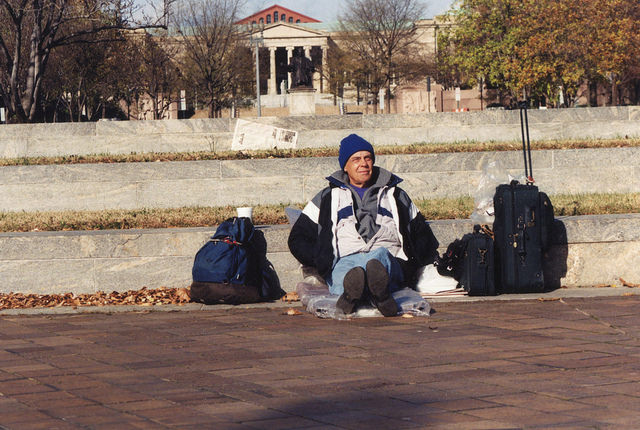I recently sat down to talk with Marta Beresin, a staff attorney for the Washington Legal Clinic for the Homeless. During our wide-ranging conversation, I had the chance to get Beresin’s thoughts on many aspects of the challenge of homelessness.
To start out with, Beresin stressed that there are many different segments to the city’s homeless
population. There are people who are chronically homeless and extremely vulnerable due to mental
illness or physical disabilities, advanced age or addictions. Then there are people who are episodically homeless: they lack social supports and they have trouble finding and keeping jobs due to a lack of the right skills. There are young people, some of them runaways who are couch-surfing. There are families, people with HIV or developmental delays or language barriers. All of them need specific types of help and services. Yet most, she says, would not be homeless if housing were not so expensive.
“Ninety-nine percent of folks who are homeless are homeless for one reason; we don’t have enough
affordable housing,” Beresin said. Earlier this year, DC Mayor Vincent Gray pledged $100 million for affordable housing. But a sustained effort is needed to actually ensure the right kinds of housing are built and the neediest people are helped, she said.
“We need a strategic plan to end homelessness and the key part of that plan is how much and what
type of affordable housing we need to build,” she added. She also stressed the importance of
continuing the city’s Housing First permanent supportive housing program. Having stable homes makes it easier for people to get medical help or break the cycle of addiction or otherwise ad- dress the problems underlying chronic homelessness, she said.
“It’s easier for them to go to an NA meeting when they have a home to come home to,” said Beresin. And the program saves the city money, too.She pointed out that the costs of providing services to people living on the streets may exceed what it would cost to provide them with stable housing.
Reflecting upon the challenges in her own work with homeless people she said she feels a kinship
with her clients.
“ Every one wants to have nice clothes to wear, nice food to eat, a nice home to live in: they want to provide for their children, they want to wake up everyday and feel like they have a purpose in life and like they do something important every day. We all want that!” said Beresin.








